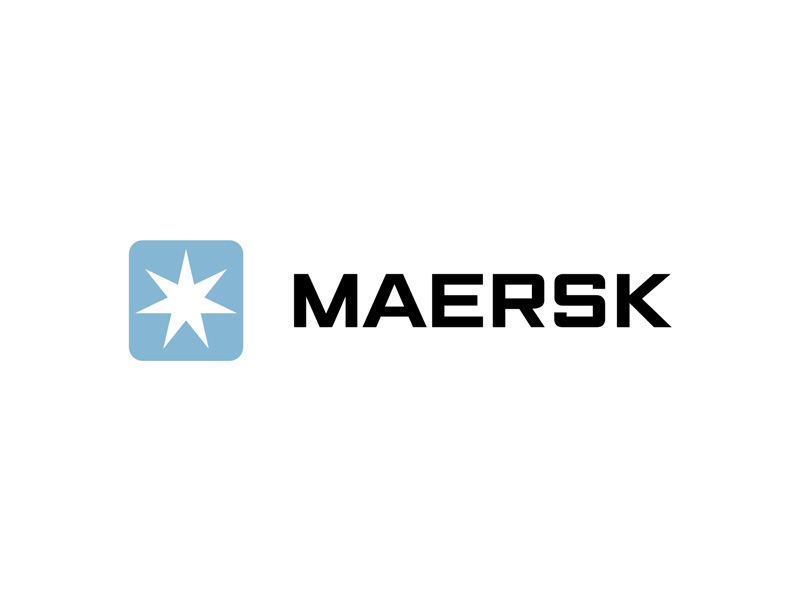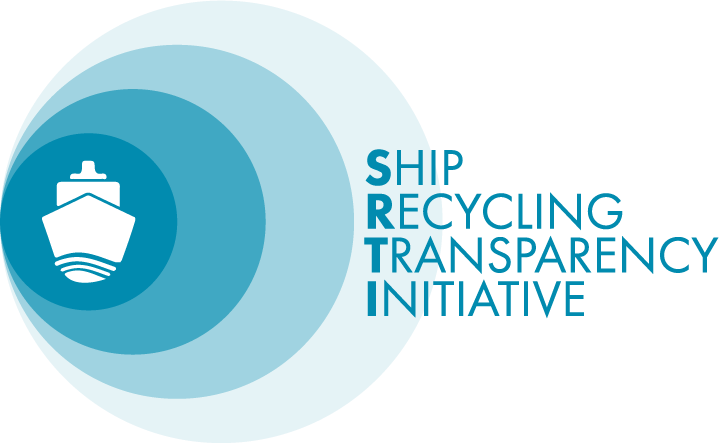A.P. Moller - Maersk
- 1. Company particulars and overall approach
- 2. Ship recycling policy and standards
- 3. Policy for selling owned vessels for further trading
- 4. Ship recycling contract
- 5. Inventory of Hazardous Materials (IHM) and Ship Recycling Documentation
- 6. Implementation of the ship recycling policy and standard
- 7. Other comments

A.P. Moller - Maersk
Copenhagen, Denmark
https://www.maersk.com/
680
300
28000000
380
20000000
The company is working to connect and simplify its customers' supply chains. As the global leader in shipping services, the company operates in 130 countries and employs roughly 70,000 people. With simple end-to-end offering of products and digital services, seamless customer engagement and a superior end-to-end delivery network, Maersk enables its customers to trade and grow by transporting goods anywhere - all over the world.
A.P. Moller - Maersk aspires to enable opportunities for responsible ship recycling globally for the benefit of Maersk, workers and the environment as well as responsible yard and ship owners. In 2019, around 89% of the annual million gross tonnage dismantled worldwide is beached at sub-standard facilities in South Asia. This happens despite many large shipowners having a policy on responsible ship recycling. This is an industry problem which leads to widespread underpayments, unsafe working conditions and environmental pollution as well as an uneven playing field within the shipping industry. No shipowner can solve this alone. In the absence of relevant and enforced global legislation, industry-led solutions promoting transparency are needed to make responsible ship recycling a reality. A high, voluntary standard must go hand in hand with strong implementation on the ground, achieved through robust supervision and audits. Since 2009, A.P. Moller - Maersk has had a responsible ship recycling standard based on a strict interpretation of the Hong Kong Convention (HKC) regarding health, safety and environmental issues but also going beyond the HKC in that it does not allow contact in the intertidal zone with blocks from primary cutting and as it includes all internationally based standards on all relevant social issues as well as downstream waste management. Furthermore, we have restricted ourselves not to sell vessels off if they are close to the end of life, eliminating incentives for selling vessels with the aim of substandard recycling by third parties Maersk will continue to create change on the ground and engage with shipowners and other stakeholders to accelerate change.
Yes
Yes
https://www.maersk.com/about/sustainability/shared-value/leading-change-in-ship-recycling-industry
2009
51-75%
Yes
Yes
https://www.maersk.com/about/sustainability/shared-value/leading-change-in-ship-recycling-industry
Yards undergo external audits at various stages of the ship recycling process and the summary reports are public.
Yes
25-50%
Since 2009, A.P. Moller - Maersk has had a responsible ship recycling standard based on a strict interpretation of the Hong Kong Convention (HKC) regarding health, safety and environmental issues but also going beyond the HKC in that it does not allow contact in the intertidal zone with blocks from primary cutting and as it includes all internationally based standards on all relevant social issues as well as downstream waste management.
No
Yes
Yards undergo external audits - prior to commencement of recycling, during recycling and after completion of the process. Maersk-appointed staff is present on the ground for supervision, training and capacity building with contractual rights to stop-work when observing unsafe behavior or processes. Audits, supervision, the right to stop-work and specific recycling plot to be used are all stipulated in the contract with the buyer (including cash-buyers) and enforced at the yards.
Yes
SDG Targets: 8.8 - Decent work and economic growth 14.1 - Life below water 17.16 - Partnerships for the goals
Yes
Yes
The sustainability reports can be found at: https://www.maersk.com/about/sustainability/reports
Yes
2009
Yes
i. When the selling price vessel is more than 40% higher than the best net scrap value, owned vessels of any age can be sold third party entities without any recycling provisions. ii. When the selling price is less than 40% higher than the best scrap market price but higher than 25%, the vessel can be sold without any recycling provisions, as long as the new buyer guarantees that the vessel is traded for a minimum of 2 years. iii. When the selling price is below 25% higher than the best scrap market price the vessel will have to be recycled accordingly to the provisions in the Maersk RSRS.
Yes
See above
Sometimes
Chartered vessels shall not fall into the scope of Maersk’s RSRS when sent for recycling, with the following two exceptions: a. When Maersk operated a chartered vessel for 16 years or longer and the vessel is sent for recycling right after the end of the charter with Maersk, Maersk will require that the owners at their cost recycle the vessel in accordance to HKC requirements (or better). b. For all Maersk owned vessels sold since 2015 to 3rd party owners against a charter back (bareboat or time charter) to Maersk, Maersk shall remain responsible for ensuring that the owners recycle the vessel in line with the Maersk RSRS in case the vessel is sent for recycling within two years after the end of the charter to Maersk. The owners of these chartered vessels shall be responsible for carrying out responsible recycling at HKC certified yards.
Sometimes
See above
Sometimes
Only a very small fraction of our total capacity is under JV (minor tugboats).
Always
RECYCLECON from BIMCO, with RSRS-related specific clauses.
Always
See above
Yes
The recycling contract includes the below: a. Work at a yard where Maersk vessel lands shall commence only after RSRS compliance is achieved, as verified by external auditors. b. The Maersk-appointed supervision staff shall be in the yard to monitor and control the operations whilst verifying these are carried out as per RSRS. Also, the supervision team has the authority to stop-work, in case of unsafe acts of RSRS non-conformances. c. The yards shall undergo external audits to verify continual RSRS compliance at any point during the recycling operations.
Yes
Always
Always
No
No
Always
The company considers it a starting point to consider a yard worthy of undergoing the RSRS audit. This is done by credible external auditors against RSRS and an improvement plan drawn up. Work at a recycling yard, where Maersk vessel lands, commences only after RSRS compliance is achieved. Also, audits are carried out at routine intervals during the recycling process.
Always
The company carries out an initial RSRS audit as part of the shortlisting process and prior finalising any yard for ship recycling.
Always
The company deploys a responsible ship recycling supervision team on a daily and full-time basis, who is in attendance to monitor with contractual rights to stop-work when observing unsafe behavior or processes. Also, external audits are carried out at routine intervals during the recycling process.
The monitoring covers verification of compliance with RSRS. This is with a contractual authority to ‘stop-work’, in case the team sights an unsafe act or non-compliance in relation to RSRS. Further, the company engages external auditors to carry our routine RSRS audits. The RSRS requires the yard to carry out a detailed environment testing, sub-contractor audits and tracking the safe removal, temporary storage and disposal of all hazardous materials removed on an ongoing basis.
Always
Always
The RSRS has elements, outlining mechanisms through which the yard workers can voice their concerns anonymously. Also, several open meetings are conducted where worker concerns are/can be raised and resolved in a constructive manner.
Always
The RSRS has elements empowering yard workers to associate and bargain collectively. In the absence of Union at certain ship-recycling destinations, a Work’s Committee, in-line with the national law, is formed by the workers with an aim to achieve the same objectives.
The company plays an active and a suitable role in the wider development of the Alang ship recycling industry by partnering with credible local players to: i. To run a Mobile Health Unit (MHU) project aimed at addressing existing gaps in the primary health care services. The qualified medical professionals in the MHU provide free treatment and medicine for all Alang workers and the wider community. ii. The training project aimed at creating awareness amongst all Alang workers, thereby mitigating health risks.

